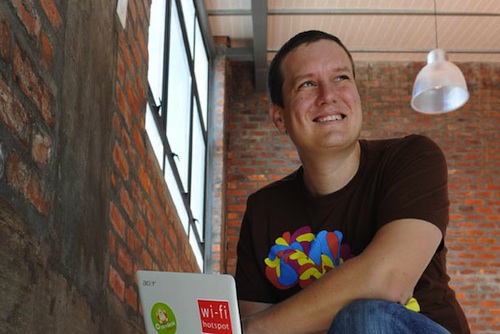
In its framework for the licensing of high demand spectrum, published last week, the Independent Communications Authority of SA (Icasa) says it intends to reserve a portion of the 2,6GHz band for a “managed spectrum park”. The idea, it seems, is to make spectrum available to various operators, and particularly new ones, on a self-managed basis. The question, however, is how it will work?
Henk Kleynhans, founder of Skyrove, says he’s concerned Icasa hasn’t outlined how the spectrum parks will operate. He says the authority hasn’t so much proposed a model as an idea and only once more information is made available will operators and other interested parties be able to assess fully the likely impact of the move.
“Icasa is trying stopgap solutions that might be improvements but there is actually a much better model that is now available that Icasa could be using,” says Kleynhans. He says that model involves making certain areas of spectrum, like television “white spaces” — the empty buffers of spectrum between TV stations’ frequencies — licence exempt.
Kleynhans says the idea of a single company getting spectrum for the entire country is “ridiculous” because it would prevent someone in the Eastern Cape, for example, from using a portion of spectrum owned by an operator that is only using that particular band in Gauteng.
Steve Song, founder of Village Telco, says it’s the first time he’s heard reference to spectrum parks and echoes Kleynhans’s sentiment that Icasa hasn’t provided sufficient information about what the plan will entail.

Though Song is troubled by the vagueness of Icasa’s plan for spectrum parks, he says it is pleasing that it “clearly understands the urgency of getting spectrum in use”.
He says that the authority’s decision not to go the route of spectrum auctions could be both good and bad for the SA telecommunications industry.
“In general, auctions are a good approach because they’re more likely to ensure that the person who values [the spectrum] most gets it,” says Song. But he adds that this is only true when auctions are run without being manipulated and that’s “quite hard to do”.
Details on other nations employing managed spectrum parks are thin; one of the only countries that appears to have taken this approach is New Zealand.
According to a New Zealand government website, spectrum parks are intended for situations in which “a nationwide spectrum right is not required” but where a general user licence “would be too open as services require some coordination or sharing”.
It goes on to say that the model is intended for local and regional services and seeks to encourage a “flexible, cooperative, low-cost and self-managed approach to allocation and use”.
In New Zealand’s case, the spectrum park consists of 45MHz of spectrum in the 2,6GHz band — Icasa’s proposed block falls within the same range — and licences are allocated on a “first come, first served” basis. There are, however, arbitration provisions in place to encourage spectrum sharing.
Licensees are required to pay an annual fee that includes “resource rental” and a “management charge” in addition to any applicable licence administration fees. More importantly, to ensure licensees don’t get access to spectrum without using it, they are required to implement services within two years of allocation.
This “use it or lose it” approach is something SA operators have been clamouring for, particularly in light of the spectrum in the 2,6GHz band that was allocated to state-owned Sentech and not used. — Craig Wilson, TechCentral
- Subscribe to our free daily newsletter
- Follow us on Twitter or on Google+ or on Facebook
- Visit our sister website, SportsCentral (still in beta)




